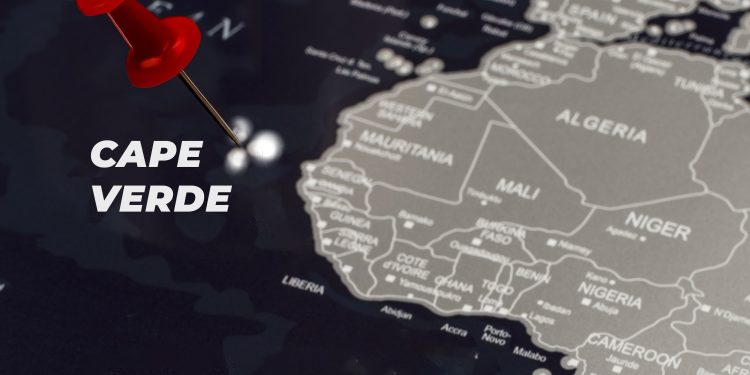GDP Up, Poverty Down in Cape Verde’s Digital Economy
Cape Verde is showing how a mix of digital ambition, sound institutions, and targeted social policy can unlock inclusive economic growth. Its emerging digital sector, backed by public investment and regional partnerships, is helping turn a small island economy into a scalable tech and talent destination.
Bonface Orucho, bird story agency
When Nigerian tech entrepreneur Olugbenga Adesida moved to Cape Verde in 2007, he wasn’t drawn by consumer markets or resource abundance. He was drawn by working institutions and a government open to reform.
“The big challenge was that nobody in Cape Verde had built a game before,” he said.
Yet Adesida stayed, launching ventures in digital governance and mobile gaming that laid the foundation for several of the country’s current digital firms.
Adesida’s journey mirrors that of other tech entrepreneurs leveraging Cape Verde’s efficient systems. With infrastructure and institutions increasingly aligned, the digital economy is seeing tangible results.
The inauguration of the second tech park, TechPark CV, in May 2025 has especially formalised Cape Verde’s digital ambitions.
The two-campus digital complex, located in Praia and Mindelo, is backed by a €45.6 million (more than US$53 million) investment from the African Development Bank.
It serves as a business development zone, providing data centres, office space, tax incentives, and training programs for startups, established firms, and tech professionals.
With 23 companies already operating in the facility, spanning fintech, agritech, and software outsourcing, Cape Verde is aiming to expand the digital economy from 7% to 25% of GDP by 2030, according to Cabo Verde’s Special Agency for Economic Zones (ZEE) and the Ministry of Digital Economy.
Officials say the ambitious growth target is tied to the success of the island nation’s Technological Park of Praia, a flagship project aimed at transforming Cabo Verde into a digital hub for West Africa.
The government expects the park to support 1,000 direct and 2,000 indirect jobs in the medium term.
Beyond technology, Cape Verde is registering strong gains in social and economic indicators. Extreme poverty dropped from 13% in 2016 to just 2.8% in 2024, while inflation remains low, at around 1%, at a time when most countries record double-digit inflation rates.
On the flipside, the island nation’s economic growth hit 7.3% in 2024 and is projected at 4.7% in 2025, according to World Bank projections.
“It is this growth that gives us the opportunity to support 10,000 people with social inclusion income, 2,000 with productive inclusion, and more than 100 associations with spaces for community action,” said Minister Fernando Elísio Freire.
The poverty reduction is tied directly to policies that focus on productive inclusion: subsidised access to water and electricity, financing for farming inputs, subsidised daycare, and the conversion of underutilised state buildings into community centres.
The approach pairs macroeconomic stability with grassroots interventions.
<script src=”https://bird.africanofilter.org/hits/counter.js” id=”bird-counter” data-counter=”https://bird.africanofilter.org/hits/story/?id=2256&slug=cape-verde-s-digital-economy-push-and-inclusive-growth-policies-are-delivering-results” type=”text/javascript” async=”async”></script>
Notably, the TechPark CV has emerged as a central node in this framework. Special economic zone status grants eligible businesses a 2.5% corporate tax rate and exemption from VAT and import duties.
Its facilities are nearly 80% occupied, and the Mindelo campus alone employs 125 professionals. Foreign and diaspora investors from Portugal, Germany, Angola, and beyond are already active in the park.
“We are opening doors to a new economy, a new generation of entrepreneurs, and a new global positioning for Cape Verde,” said TechPark CEO Carlos Miguel Monteiro.
Prime Minister Ulisses Correia e Silva has described the initiative as a practical strategy for retaining local talent and attracting regional capital.
“You must create a spirit of confidence and belief here. If you want, you can achieve everything you think you must go elsewhere for, right here,” he told young professionals at the park’s opening.
Cape Verde’s growth model contrasts sharply with challenges in other African economies. Many countries continue to grapple with inflation in double digits, rising debt, and stagnant poverty levels. While Cape Verde’s small population of about 500,000 people and limited geography provide natural constraints, its institutional coherence is positioning it as a case study in delivering results within tight margins.
According to World Bank data, the services sector accounts for nearly 78% of GDP, with tourism, finance, and IT-enabled services driving export earnings.
The government is increasingly positioning itself as a mid-Atlantic gateway between West Africa, Europe, and the Americas.
The country’s broader development strategy incorporates climate resilience, renewable energy, and diaspora mobilisation.
Social investments target over 12,000 beneficiaries through a mix of direct support and income-generation programs. Education reform has introduced earlier English instruction and digital literacy, both key to integrating the workforce into international value chains.
Projected outcomes include 30 digital firms hosted at TechPark by 2030, with 25% of GDP from digital services and a doubling of tech employment levels. Renewable energy is expected to account for 50% of electricity generation within the same period.
For entrepreneurs like Adesida, these targets now look credible.
“Nobody had built a game here before. But now we have coders, designers, and even competitors. That’s how you know something is working,” he said.
bird story agency







